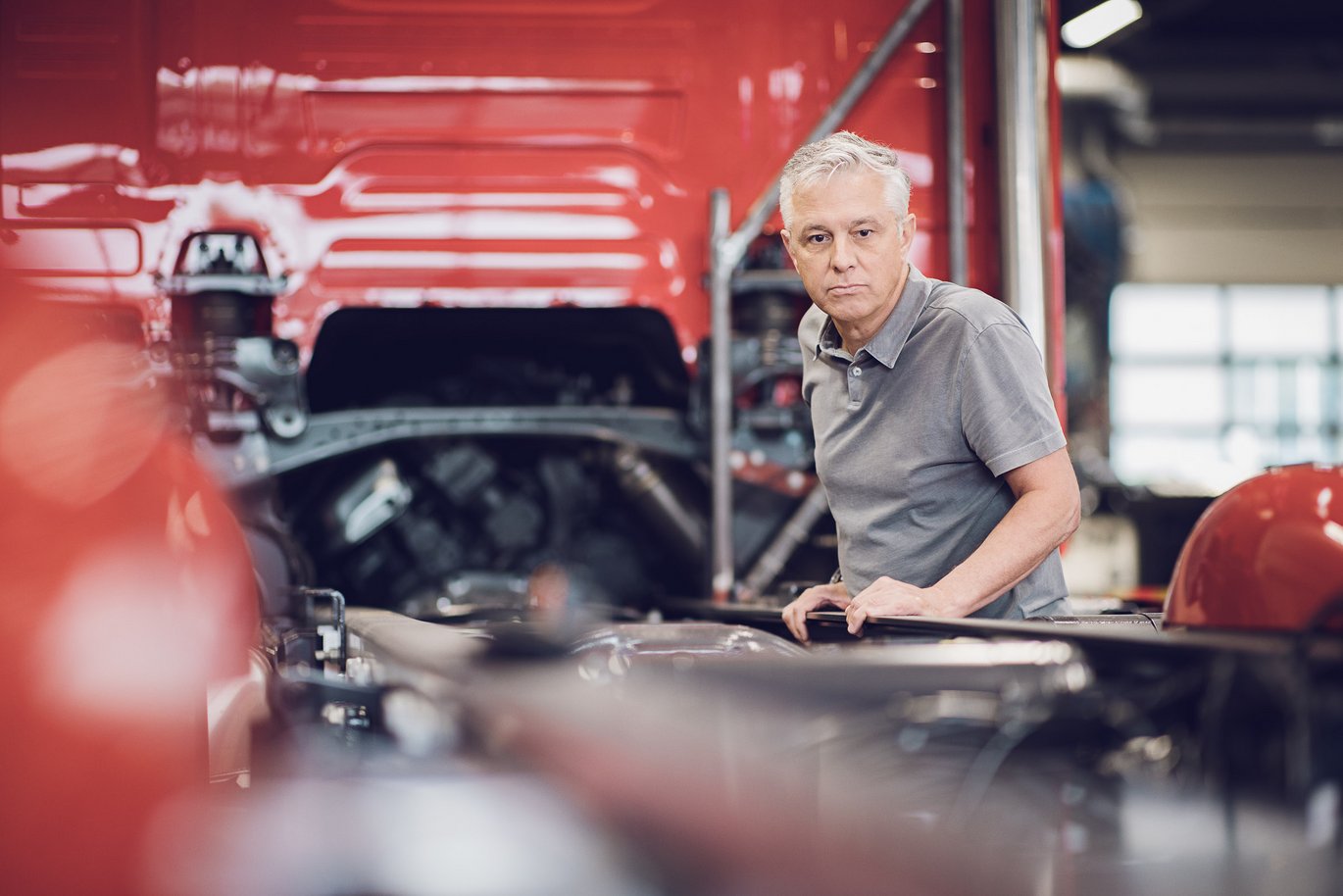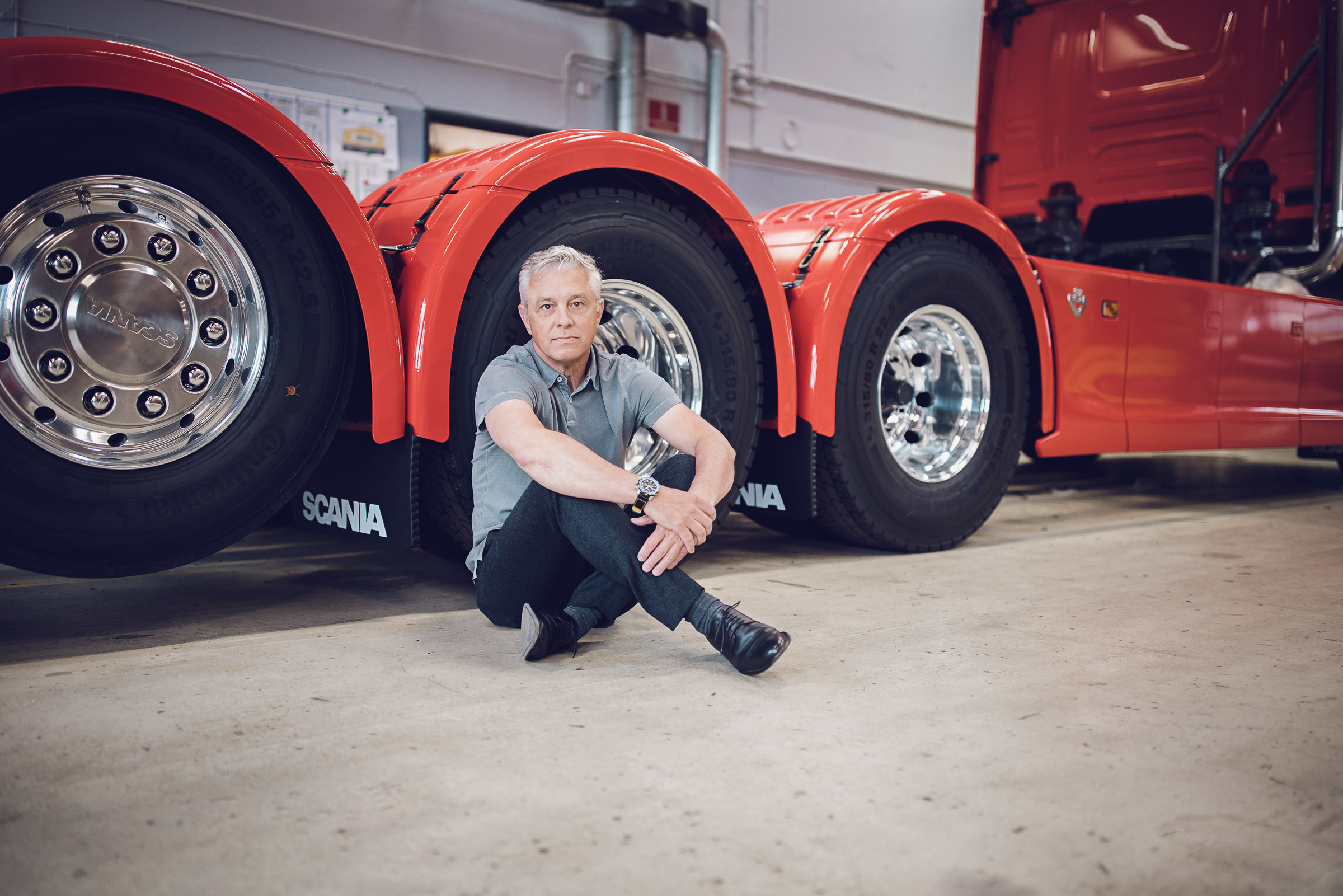Heavy trucks to run on electricity
Danish researchers are developing new electrical solutions for the transport sector. The aim is to reduce the climate footprint significantly, and the EU is investing DKK 45 million in the project.


Out with massive diesel tanks, and in with electricity from solar cells and wind turbines. This is the plan for a major new research project in which researchers expect to develop an entirely new type of technology for trucks ready in the next four years.
"Developing electrical solutions for heavy road vehicles is urgent so that in the future we have a competitive and climate-neutral alternative to fossil fuels," says Corneliu Barbu, Associate Professor at the Department of Electrical and Computer Engineering at Aarhus University.
He is part of a team in charge of developing the "brain" for the new trucks in the form of the next generation of power electronics, which transfers energy from the battery to the engine.
"Power converters are one of the major research challenges to develop climate-neutral goods transport. We want components to be as small as possible, weigh as little as possible, and all function reliably at high temperatures for a long time when the truck is in operation," says Corneliu Barbu.
The transport sector emits approximately 13 million tonnes of CO2 annually in Denmark alone.
In 2020 EU truck manufacturers within the European Automobile Manufacturers’ Association (ACEA) expressed their commitment to decarbonize this sector by 2050.
Read more about the Department of Electrical and Computer Engineering
Away with air pollution and noise
Today, there are virtually no electric trucks on the roads. However, several of the major truck manufacturers have ambitions to roll out new models to the market in the near future. This will solve major problems with CO2 emissions, air pollution and noise. But the question is whether out heaviest zero-emission vehicles can actually be a realistic alternative to their diesel-powered counterparts.
"We have to solve several problems regarding driving range, charging times, charging infrastructure and price. We also have to design a completely new type of electronics for high power density applications such as trucks and with optimal thermal control. Our goal is to develop robust and cost-effective technologies, and we expect to have a prototype ready in three to four years," says Corneliu Barbu.
To do this, the researchers will use artificial intelligence (AI), Internet of Things (IoT), advanced semiconductor materials, a new array of sensors, optimal thermal management strategies and control, and other innovative vehicle technologies to improve the efficiency and reduce the cost of electric powertrains for heavy-duty long-haul vehicles.
"Enormous amounts of energy transfer are needed to charge the battery in a truck and then to transfer the energy from the battery to the engine. And the big question is: How can we do this? At Aarhus University we have expertise in using computer-engineering calculation methods to design advanced electronics with completely new properties. This is why we have been given a key role in the project," says Corneliu Barbu.
"No one can do this alone"
Corneliu Barbu stresses that developing the electrical truck of the future is so complex that it requires close collaboration.
"No one can do this alone - neither a company nor a university. We have a common goal of a future with less climate impact, and now it’s time to pool our knowledge across disciplines, research and commercial interests. We need to investigate novel technical solutions, and address the effectiveness, circularity, and sustainability,” he says.
Trucks on European roads account for about six percent of total CO2 emissions.
The project is called RHODaS (Reinventing High-performance pOwer converters for heavy Duty electric transport) and is funded by Horizon Europe.
CONTACT
